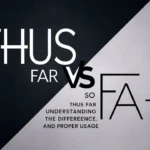We’ve all been there—needing to reach out to someone but feeling guilty about interrupting them. Whether it’s a colleague, a friend, or a stranger, we often rely on phrases like “Sorry for bothering you” or “Sorry to bother you” to smooth over the situation. But are these two phrases truly interchangeable? And, more importantly, are we using them correctly in different contexts?
In this post, we’ll dive into the meanings of “Sorry for bothering you” and “Sorry to bother you,” explore the key differences between the two, and offer useful alternatives for a variety of situations. By the end, you’ll be able to navigate these subtle distinctions with ease and sound more natural and respectful in your conversations.
Breaking Down the Phrases
Sorry for Bothering You
“Sorry for bothering you” is a phrase most commonly used when you want to apologize for an action that has already taken place. In other words, you’ve already interrupted or inconvenienced someone, and you’re acknowledging that fact. It implies that your action (bothering the other person) has already occurred, and you’re now expressing regret for it.
Example:
“Sorry for bothering you during your lunch break. I didn’t mean to interrupt your time.”
This phrase can be used in informal settings and casual conversations, and it’s often used when the speaker feels they’ve done something annoying or disruptive. It shows recognition of the inconvenience caused and offers a polite way to address it.
Sorry to Bother You
On the other hand, “Sorry to bother you” is a slightly different expression. It’s a proactive apology used before an action takes place. In this case, you’re warning the person that you may interrupt or cause an inconvenience, but you’re not yet doing so. It’s commonly used when you’re about to make a request or ask something of someone.
Example:
“Sorry to bother you, but could you help me with this project?”
This phrase is often considered more polite or formal than “Sorry for bothering you” because it signals your awareness that the person might be busy or otherwise unavailable. You’re acknowledging the potential interruption before it happens.
Key Differences Between the Two
Understanding the key differences between “Sorry for bothering you” and “Sorry to bother you” will help you use each phrase more effectively in the right context.
Temporal Differences
One of the most notable distinctions between the two phrases is their timing.
- “Sorry for bothering you” refers to something that has already happened. It’s a past-tense apology for an action you’ve already carried out, which may have caused inconvenience or discomfort.
- “Sorry to bother you” is forward-looking. It’s a future-oriented apology, used when you’re about to ask someone for something or interrupt them.
By understanding the temporal difference, you’ll be able to choose the correct phrase based on the situation.
Degree of Formality
There’s also a slight difference in the level of formality between the two phrases. “Sorry to bother you” is generally seen as more polite and formal, especially in professional settings.
- “Sorry for bothering you” tends to be a bit more informal and conversational, used primarily with people you’re close to or in casual contexts.
- “Sorry to bother you” is ideal for situations where you need to show more respect or politeness, such as in professional or formal conversations.
This difference is important when deciding which phrase to use in various environments.
Intent Behind the Apology
Both phrases convey a sense of apology, but the intent behind the apology differs slightly.
- “Sorry for bothering you” is used when the speaker feels remorseful for having already caused inconvenience. It acknowledges the action and offers a simple apology.
- “Sorry to bother you” is more about being proactive. You’re apologizing in advance because you recognize that your request or action could potentially interrupt or disturb the other person.
Situations Where Each Is Most Appropriate
Social and Casual Settings
In casual settings, the level of formality isn’t as important. Here, both “Sorry for bothering you” and “Sorry to bother you” can be used, but the context still plays a role.
When to Use “Sorry for Bothering You”
This phrase is perfect when you’re apologizing for an inconvenience that’s already taken place, particularly in informal settings.
Example:
“Sorry for bothering you last night with my question. I really needed your input on something.”
This would work well when speaking to a friend or family member after having already disrupted them.
When to Use “Sorry to Bother You”
While this phrase can still be used informally, it is typically reserved for when you’re about to ask something or make a request.
Example:
“Sorry to bother you, but do you have a moment to chat?”
In these casual situations, it still shows consideration for the other person’s time, even if you have a close relationship with them.
Professional or Formal Settings
In professional contexts, being polite and respectful is key. “Sorry to bother you” is usually the safer choice in these settings.
When to Use “Sorry for Bothering You”
“Sorry for bothering you” may occasionally be used in professional settings, but only when acknowledging something that has already happened.
Example:
“Sorry for bothering you earlier. I didn’t mean to interrupt your meeting.”
However, this is best reserved for less formal situations in the workplace.
When to Use “Sorry to Bother You”
“Sorry to bother you” is the more appropriate choice when you’re reaching out to someone in a professional or formal context. It signals that you’re being mindful of the other person’s time.
Example:
“Sorry to bother you, but I need your input on this project. Would you mind reviewing it for me?”
Using this phrase helps convey respect, especially in situations where the other person might be busy or unavailable.
Alternatives to “Sorry for Bothering You” and “Sorry to Bother You”
Sometimes, using a variety of phrases can make your communication sound more natural and less repetitive. Here are a few alternative phrases you can use in place of “Sorry for bothering you” or “Sorry to bother you.”
Alternatives for Apologizing
- “Excuse me, but…”
This phrase is a great, less formal alternative to “Sorry to bother you.” It can be used to politely interrupt someone or initiate a conversation. - “I hate to interrupt, but…”
This is a considerate way to begin a conversation when you know you might be interrupting. It softens the impact of the interruption. - “I hope I’m not disturbing you, but…”
This is another gentle way of signaling that you’re about to ask something or interrupt, often used in formal or professional contexts.
Alternatives for Making Requests
- “Do you mind if I ask…”
This is a polite way of initiating a request. It shows respect for the other person’s time and makes the request feel less demanding. - “I was wondering if…”
This phrase softens the request, making it sound less direct and more considerate, ideal for formal or polite settings.
Common Mistakes and How to Avoid Them
Over-apologizing
One common mistake people make when using these phrases is over-apologizing. Repeating apologies can weaken the sincerity of your message or make it sound insincere.
Example of Over-Apologizing:
“Sorry to bother you again, I’m so sorry for interrupting.”
This not only sounds redundant but can also create a sense of discomfort in the conversation.
How to Avoid It:
It’s important to strike the right balance. You don’t need to apologize multiple times for a single action or request. Instead, offer a brief and sincere apology and move forward with your message.
Misusing the Phrases in Context
Using “Sorry for bothering you” when you’re about to ask something can sound awkward or confusing.
Example of Misuse:
“Sorry for bothering you, but can you help me with this?”
Correct Approach:
“Sorry to bother you, but could you help me with this?”
Understanding when and where to use these phrases makes your communication clearer and more effective.
Conclusion
Understanding the differences between “Sorry for bothering you” and “Sorry to bother you” is key to sounding polite, respectful, and confident in both casual and professional settings. By recognizing when to use each phrase and exploring alternatives, you can ensure your language is both effective and considerate.
The next time you need to reach out to someone, whether it’s for a quick question or a larger request, you’ll have the knowledge to choose the right phrase. Practice using these distinctions to make your conversations more natural and impactful. After all, effective communication is about more than just the words you use—it’s about conveying respect, understanding, and clarity.
FAQs
Q1: What is the difference between “Sorry for bothering you” and “Sorry to bother you”?
A1: The main difference is the timing and intent behind each phrase. “Sorry for bothering you” is used to apologize for something that has already happened, while “Sorry to bother you” is used before an action takes place, to express awareness that you might interrupt or cause inconvenience.
Q2: Which phrase is more formal: “Sorry for bothering you” or “Sorry to bother you”?
A2: “Sorry to bother you” is generally considered more formal and polite, especially in professional or respectful settings. It’s a proactive apology, often used when asking for help or making a request. “Sorry for bothering you” is more casual and used when apologizing for something that’s already occurred.
Q3: Can “Sorry for bothering you” be used in a business email?
A3: Yes, “Sorry for bothering you” can be used in a business email if the situation calls for it. However, for a more professional tone, it’s typically better to use “Sorry to bother you” or other alternatives like “I hope I’m not disturbing you” when reaching out with a request or inquiry.
Q4: When should I use “Sorry to bother you” in conversation?
A4: “Sorry to bother you” is ideal when you’re about to interrupt or make a request, especially if you’re unsure of the other person’s availability or are aware they may be busy. It is a polite and respectful way to start a conversation in both professional and casual contexts.
Q5: How can I avoid sounding insincere when apologizing for bothering someone?
A5: Avoid over-apologizing or repeating the apology too many times. A simple, clear apology, followed by your request or statement, shows sincerity. For example, “Sorry to bother you, but I need your help with something” is effective without overdoing it.

Isabella Sofia is a passionate writer and spiritual enthusiast dedicated to exploring the profound meanings behind angel numbers. With a deep belief in the guidance of the universe, Isabella shares her insights and interpretations to help others connect with their spiritual journey.



